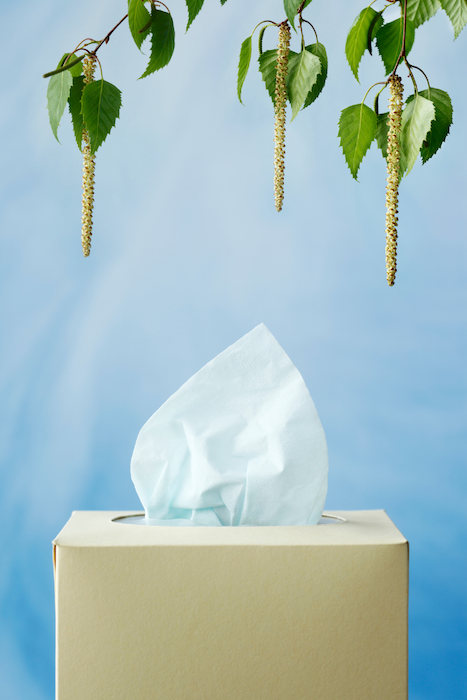Your lungs are one of the most important organs in your body. They are responsible for getting oxygen into your bloodstream and removing carbon dioxide. If your lungs aren’t healthy, it can be difficult to breathe and you may feel tired all the time. In this article, I’ll discuss nine tips for optimizing lung health and taking care of your lungs!
The lungs are one of the most important organs in the human body. Obviously, without them, you couldn’t breathe, and then, well…
But there’s more to them than that!
Your lungs are responsible for taking in oxygen and exhaling carbon dioxide. This process is essential for maintaining a healthy body and mind. Without oxygen, our cells would not be able to function properly and we would quickly become exhausted.
The lungs also help regulate blood pressure and keep the heart beating, making them essential for the circulatory system. Additionally, the lungs work with the immune system to protect the body from harmful microbes.
In short, the lungs play a vital role in keeping the body functioning properly. Without them in proper health, we would quickly succumb to illness or injury.
So how do we best take care of them?
Well, keep reading to find out!
Most people know that exercising is good for their heart and muscles, but did you know that it can also support lung health?
When you exercise, your breathing rate increases and your body takes in more oxygen. As a result, your lungs have to work harder, which helps to keep them strong and healthy. In addition, regular exercise helps clear out mucus and other respiratory secretions, keeping
your airways clear. And finally, exercise can help improve your overall cardiovascular fitness, which can also benefit your lungs.
So if you’re looking for a way to support lung health, there’s no need to look any further than your local gym. Just remember to start slowly and build up gradually to avoid over-stressing your lungs.

Most people know that it’s important to stay hydrated, but did you know that drinking plenty of water can also support lung health?
Water is essential for many of the body’s functions, including keeping the mucous membranes in the lungs moist. These membranes line the passageways in the lungs and help trap dust, bacteria, and other harmful particles. If they become too dry, they can crack and allow these particles to enter the lungs, which can lead to infection. Drinking water helps to keep the mucous membranes healthy and moist, making it easier for the lungs to do their job. In addition, water helps thin mucus so that it can be more easily expelled from the lungs.
Next time you reach for a glass of water, remember that you’re not just quenching your thirst – you’re also helping your lungs stay healthy and function at their best.
Antioxidants are important for lung health because they help protect cells from damage. The lungs are constantly exposed to damaging agents, such as pollutants and cigarette smoke. These agents can cause oxidative stress, which leads to cell death. Antioxidants help to neutralize these harmful agents, preventing them from causing damage.
Studies have shown that antioxidants can help improve lung function and reduce the risk of lung diseases. Furthermore, antioxidants play an important role in maintaining the elasticity of the lungs and reducing inflammation. Consequently, it is important to include foods high in antioxidants in your diet in order to support lung health.
Dust is not just a nuisance – it can also be harmful to your health.
Dust particles are small enough to enter your lungs, and once they’re inhaled, they can cause irritation and inflammation. In some cases, this can lead to respiratory problems such as asthma or bronchitis.
In addition, dust can also hold harmful toxins that can damage your lungs and other organs. Therefore, it’s important to take precautions to avoid breathing in dust, especially if you’re working in a dusty environment. By being mindful about your dust exposure, you can help keep your lungs healthy and free from harmful dust particles.

Allergies are a common problem that can cause a variety of symptoms, including sneezing, congestion, and itchy eyes. While these symptoms may be annoying, they are usually not harmful.
However, allergies can also take a toll on your lungs. Allergies can cause asthma attacks and make it difficult to breathe. In severe cases, they can even lead to pneumonia. Some research has also linked allergies to an increased risk of lung cancer. Therefore, it is important to be aware of the potential risks of allergies and take steps to protect your lungs. One way to do this is to avoid triggers like dust, pollen, and smoke. If you find your lungs are consistently bothered, it’s important to find ways to manage your allergies and reduce the risks to your lungs.
Smoking is one of the leading preventable causes of death worldwide, and it is well-known that it harms the lungs.
The chemicals in tobacco smoke damage the cells that line the airways, causing inflammation and making it difficult to breathe. Over time, this damage can lead to serious lung conditions such as emphysema and bronchitis. In addition, smoking increases the likelihood of developing lung cancer.
The good news is that it is never too late to quit smoking and improve your lung health. Within a few months of quitting, your lungs will begin to repair themselves, and you will start to feel the difference.
So if you’re looking to improve your lung health, quitting smoking is one of the best things you can do.
Air pollution isn’t just bad for the environment, it’s also bad for your health.
Studies have shown that air pollution can cause a variety of respiratory problems, including bronchitis, asthma, and even lung cancer. The particles in polluted air can irritate your lungs and make it difficult to breathe. In addition, the chemicals in air pollution can damage your lung tissues and cause inflammation.
If you already have a respiratory condition, air pollution can make it worse. It’s important to protect your lungs by avoiding areas with high levels of air pollution.
Stress is a part of everyone’s life, but it can be especially harmful to your lungs.
When you’re stressed, your body releases a hormone called cortisol. Cortisol constricts your blood vessels and makes it harder for oxygen to reach your cells. This can lead to inflammation and fluid retention in the lungs, as well as difficulty breathing. In addition, stress can make asthma and other lung conditions worse.
If you’re struggling to manage your stress, there are a few things you can do to help. Exercise is a great way to relieve stress, and it also helps to improve lung function. Deep breathing exercises can also be helpful in relaxing the body and promoting better airflow.
By taking steps to reduce stress, you can help keep your lungs healthy and free from harm.

Since we breathe automatically, without giving it a lot of thought, most people take breathing for granted. However, the quality of our breath can have a big impact on our overall health.
Proper breathing helps to oxygenate the blood and deliver nutrients to the cells. It also helps remove toxins from the body and promote relaxation. For people with lung conditions, learning how to breathe correctly can be an essential part of managing their condition.
There are a number of different breathing exercises that can help support lung health. Pursed-lip breathing, for example, can help slow down the breathing rate and make it easier to breathe out. Diaphragmatic breathing, meanwhile, helps to improve the efficiency of the lungs by encouraging full inhalation and exhalation.
Practicing these exercises regularly can help to improve lung function and reduce the severity of symptoms.
These are just a few tips to help you keep your lungs healthy and optimize your lung health! And remember – take care of your lungs and they’ll take care of you!
Remember when I said that it’s important to take in antioxidants? Well, what if you could take in the MASTER antioxidant in a highly absorbable form?
That way, every part of your body – like the lungs – could use it effectively.
Well, with Purality Health’s Micelle Liposomal Glutathione, you can.
Research has found that low glutathione levels are associated with poor lung health. And unfortunately, our glutathione levels naturally deplete as we age.
Don’t fall behind on glutathione levels.
Low glutathione levels is honestly such a HUGE aspect of what ages us.
I think you’ll be shocked to see just how much it affects us after you read this article put together by our friends over at Purality Health.